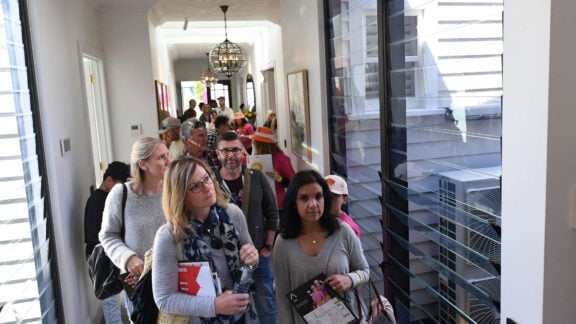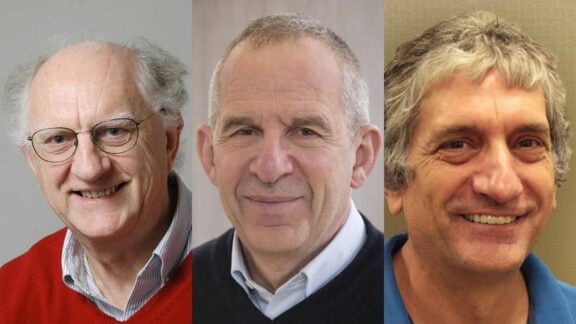The United Nations Climate Conference in Glasgow (‘COP26’) was held in the wake of extreme-weather events made worse by climate change, new warnings of danger from the scientific community and a global lesson in the merits of acting on the basis of science during the pandemic. During the two-year gap in formal negotiations forced by the pandemic, the global movement for stronger action among youth, Indigenous peoples and many other communities kept the pressure on for credible outcomes at COP26.
Religious communities are playing a growing, networked role in this movement for climate action. The long, virtual run-up to Glasgow for national negotiators was matched by a sustained campaign of religious diplomacy and advocacy. Often ecumenical in scope, this series of events, announcements and declarations included September’s first-ever joint statement of a Pope, an Orthodox Ecumenical Patriarch and an Anglican Archbishop of Canterbury.
Ecumenical Patriarch Bartholomew’s climate advocacy
Continuing his decades of leadership on environmental issues, Ecumenical Patriarch Bartholomew was a protagonist in this pre-COP advocacy, giving calls to action (in English, French, Greek and Italian) to high-level gatherings on three continents. These included an address to September’s G20 Interfaith Forum in Bologna. In this “Open letter to COP26”, Bartholomew expressed his hope that the results of the Glasgow conference ‘can move the global environment to the level necessary for the world to reach net zero’.
“In less than 30 years”, he added, “it is possible to achieve the regeneration of our planet. Imagine living free from fossil fuels. Imagine a world in which we take care of one another. If realized, the attainment of intra- and inter-generational justice and the elimination of abhorrent poverty become possibilities.”
The high point of this religious diplomacy was the early October meeting in the Vatican of around 40 faith leaders, among them Patriarch Bartholomew and the Moscow Patriarchate’s Metropolitan Hilarion. The leaders issued a joint appeal to COP26 participants, which Pope Francis handed to the COP26 president, UK government minister Alok Sharma, and Italian foreign minister Luigi Di Maio (representing Italy’s partnership with the UK for the Glasgow conference).
This joint appeal urged governments to deliver transformational outcomes at COP26, including for all governments to ‘adopt a trajectory that will limit the global average temperature rise to 1.5°C’; for the fulfilment of “existing promises to provide substantial financial support to vulnerable countries”; for the protection of Indigenous peoples and local communities from “predatory economic interests”; and for an “an effective and inclusive just transition” that prioritises “decent employment for all, particularly those in fossil fuel dependent sectors”.
To these declarations, we could add Pope Francis’ remarkable October speech to the Fourth World Meeting of Popular Movements, in which he called (among much else) for the ‘great extractive industries’ to ‘stop destroying forests, wetlands and mountains, to stop polluting rivers and seas, to stop poisoning food and people’.
Faint echoes
Placing these appeals by religious leaders for transformational change side-by-side with the actual Glasgow outcomes, we can hear in the latter only faint echoes of the former. On reducing emissions, the Glasgow Climate Pact – overarching conference decisions agreed at ministerial level – notes that holding global warming to 1.5°C requires deep cuts in global emissions by 2030 while emissions are on track to be higher in 2030 than they were in 2010. The decision therefore requests countries strengthen their 2030 targets by the end of 2022, “as necessary to align with the Paris Agreement temperature goal”. On the transition to low-emissions energy, there is a heavily caveated call for “accelerating efforts towards the phase down of unabated coal power and phase-out of inefficient fossil fuel subsidies.”
On support for developing countries, the decision ‘notes with deep regret’ that the decade-old pledge of USD 100 billion annually from developed countries by 2020 has not been achieved and “urges” developed countries to deliver on this. Also on finance, the conference called for developed countries to double their adaptation finance for developing countries by 2025 and agreed a new process for identifying a post-2025 climate finance target.
There is also a two-year work programme on the global adaptation goal and a new ‘dialogue’ to “discuss the arrangements for the funding of activities to avert, minimize and address loss and damage associated with the adverse impacts of climate change” – concluding in 2024.
READ MORE: Andrew Liveris foreshadows a global carbon price at COP26 summit in Glasgow
Collectively, the Glasgow outcomes represent progress. They are perhaps more than could have been expected after a two-year break in negotiations, without the usual in-person preparatory meetings that normally proceed a COP. But they are clearly not the step-change that’s needed. A reader might ask, and would be justified in asking, what were we all doing in Glasgow, then?
The truth is that Glasgow showed the limits of what a negotiation among almost 200 countries, based on consensus, can achieve. The last-minute weakening of the language on coal, following the objections of a handful of large countries, is just one high-profile example of how it works. There were literally hundreds of other such instances, mostly out of the public gaze. Consensus means almost every country must be accommodated, from the most progressive to the least.
Limits of Glasgow
Despite these limitations, the UN process has an important role to play. It is the one platform that gives equal standing to the poorest and most climate-vulnerable countries, alongside the major powers. Consensus gives legitimacy to rules that countries, ultimately, cannot be forced to follow. And if the appeals of religious leaders and civil society more broadly can only be seen in the Glasgow decisions ‘through a glass, darkly’, there is little doubt that these mobilisations made the outcomes more ambitious than they would otherwise have been.
Finally, COP26’s impact is not limited to its formal, negotiated outcomes. Several major partnerships and initiatives were launched in Glasgow on critical topics including finance, methane emissions and deforestation. It is in this space, outside the negotiating rooms, that civil society and other non-state actors (or ‘non-party stakeholders’ in UN-speak) can play a direct role. With the completion of the Paris Agreement rules in Glasgow, UN climate conferences should become less about negotiations and more about convening, tracking progress and strengthening ambition and action.
♦ Dr Stephen Minas who wrote the above article in his personal capacity. is associate professor at the School of Transnational Law, Peking University and senior research fellow at the Transnational Law Institute, King’s College London, where Stephen completed a PhD in law.
He’s Chair of the UNFCCC Technology Executive Committee and a member of the EU team in UN climate negotiations.









